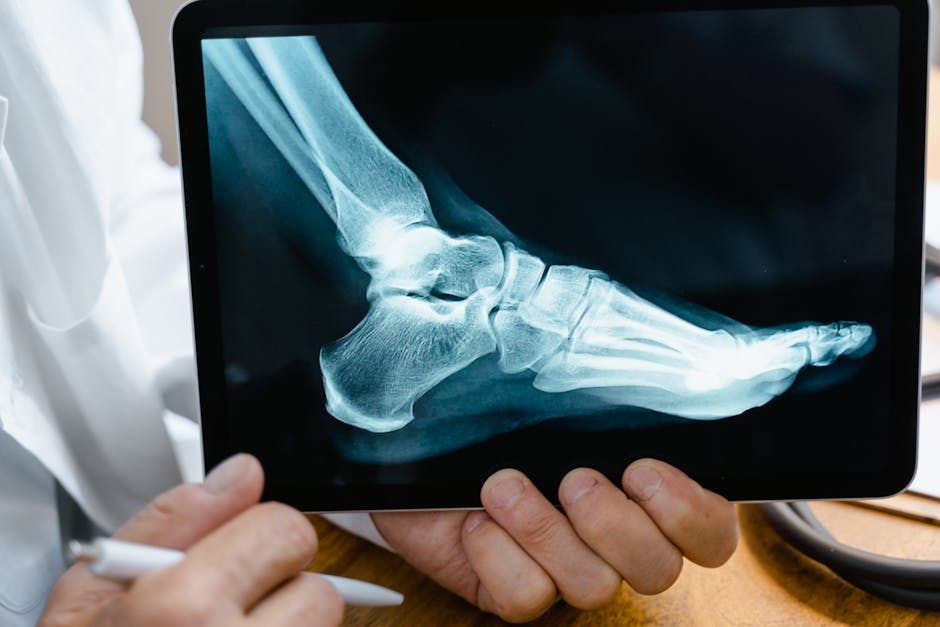AI-Powered Healthcare: Revolutionizing Patient Care in the Modern Era
Artificial intelligence has been quietly reshaping healthcare, bringing a level of precision and efficiency that was once the stuff of science fiction. If you’ve ever wondered how your health could benefit from these advances,
From Diagnosis to Treatment: The Power of Algorithms

Imagine visiting your doctor with vague symptoms that could point to dozens of potential conditions. In the past, this might have required multiple tests, specialist consultations, and weeks of waiting. Today, AI algorithms are stepping in to assist medical professionals by analyzing data faster than any human could. For example, platforms like IBM’s Watson Health are designed to process vast quantities of medical literature alongside patient information to help suggest possible diagnoses and treatment plans.
One standout area is radiology. AI tools like those developed by Google Health have shown remarkable accuracy in detecting conditions such as breast cancer from mammograms, sometimes even outperforming human radiologists. These systems don’t replace doctors but act as a second set of eyes, catching anomalies that might otherwise go unnoticed. It’s like having an ultra-precise assistant who never gets tired.
The Personalized Medicine Revolution
Not so long ago, treatments for most diseases followed a one-size-fits-all approach. If you were prescribed medication, it was likely based on what worked for the majority of patients with your condition. But people aren’t all the same, genetics, lifestyle, and even environment play significant roles in how we respond to treatment. This is where AI shines.
Companies like Tempus and Deep Genomics are using AI to analyze genetic data and identify patterns that can predict how individuals will respond to specific therapies. For instance, cancer patients may now receive tailored treatment plans based on the unique molecular profile of their tumor. It’s the medical equivalent of swapping out generic roadmaps for personalized GPS directions.
This approach isn’t limited to rare or complex diseases either. Everyday ailments like diabetes or hypertension are also seeing benefits. Platforms that integrate wearables and AI-driven analytics (think Fitbit paired with advanced algorithms) can monitor real-time health data and adjust recommendations accordingly. It’s health management designed just for you.
Streamlining Administrative Overheads
If you’ve ever spent an hour filling out forms at a clinic or waited weeks for an insurance claim to process, you’ll appreciate this next advancement. Healthcare is infamous for its administrative bottlenecks, but AI is starting to streamline these processes significantly.
Natural language processing (NLP), a subset of AI, is being used to automate tedious documentation tasks. For example, tools like Suki and Nuance Dragon Medical One allow doctors to dictate notes during patient visits while the software organizes and inputs the information into electronic health records (EHRs). This gives physicians more time with patients instead of screens.
Similarly, companies like Olive are tackling inefficiencies in billing and insurance approvals by automating repetitive tasks. Imagine claims being processed in minutes rather than weeks, patients get quicker resolutions, providers reduce paperwork headaches, and insurance companies improve accuracy.
Tackling Public Health Challenges
AI’s role isn’t confined to individual care; it’s also making waves in public health efforts worldwide. One notable example comes from the COVID-19 pandemic when AI-powered tools helped researchers track outbreaks in real-time and predict where resources would be needed most urgently.
BlueDot, an AI platform that analyzes global data sources such as news reports and airline ticketing patterns, was among the first systems to alert authorities about an unusual cluster of pneumonia cases in Wuhan back in late 2019. By identifying risks early on, these tools give public health officials a head start in containing diseases before they spread further.
Beyond pandemics, AI is being used to study long-term trends in chronic illnesses like obesity or heart disease across populations. Analyzing massive datasets allows researchers to pinpoint risk factors more accurately than traditional methods alone. It’s akin to solving a giant puzzle where every piece matters and machines are incredibly good at finding where those pieces fit.
Ethics and Challenges: Navigating the Unknowns
No discussion about AI in healthcare would be complete without addressing its challenges. While the potential benefits are staggering, there are legitimate concerns about data privacy, algorithmic bias, and transparency in decision-making processes.
Take bias as an example: if an AI system is trained on datasets that don’t adequately represent diverse populations, its recommendations may inadvertently disadvantage certain groups. Similarly, patients deserve clear explanations when their care decisions involve machine-driven insights, nobody wants their treatment plan dictated by a “black box” they can’t understand.
Regulators and organizations are actively working on frameworks to ensure ethical use of these technologies. The FDA has begun establishing guidelines for approving AI-based medical devices while emphasizing safety and efficacy standards comparable to traditional methods. Meanwhile, some hospitals are forming ethics committees specifically tasked with overseeing AI implementations in clinical settings.
The Road Ahead
The integration of artificial intelligence into healthcare isn’t just changing how we approach diagnosis or treatment, it’s redefining what we consider possible within patient care itself. From life-saving innovations in precision medicine to practical improvements in daily workflows, these advancements offer tangible benefits that touch lives directly.
As we embrace these technologies thoughtfully and responsibly, one thing remains clear: the fusion of human expertise with machine intelligence holds unparalleled promise for creating healthier futures, for everyone.
References:
This article was generated by AI